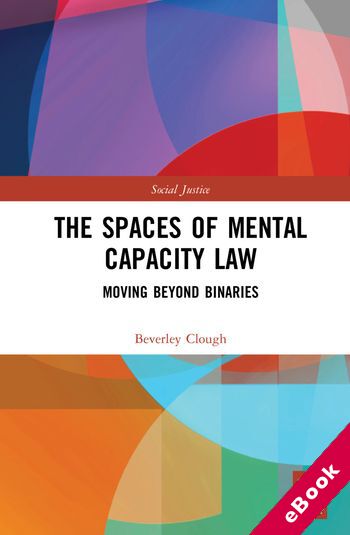
The device(s) you use to access the eBook content must be authorized with an Adobe ID before you download the product otherwise it will fail to register correctly.
For further information see https://www.wildy.com/ebook-formats
Once the order is confirmed an automated e-mail will be sent to you to allow you to download the eBook.
All eBooks are supplied firm sale and cannot be returned. If you believe there is a fault with your eBook then contact us on ebooks@wildy.com and we will help in resolving the issue. This does not affect your statutory rights.
This book explores the conceptual spaces and socio-legal context which mental capacity laws inhabit. It will be seen that these norms are created and reproduced through the binaries that pervade mental capacity laws in liberal legal jurisdictions- such as capacity/incapacity; autonomy/paternalism; empowerment/protection; carer/cared-for; disabled/non-disabled; public/private. Whilst on one level the book demonstrates the pervasive reach of laws questioning individuals mental capacity, within and beyond the medical context which it is most commonly associated with, at a deeper and perhaps more important level it challenges the underlying norms and assumptions underpinning the very idea of mental capacity, and reflects outwards on the transformative potential of these realisations for other areas of law. In doing so, whilst the book offers lessons for mental capacity law scholarship in terms of reform efforts at both domestic and internationals levels, it also offers ways to develop our understandings of a range of linked legal, policy and theoretical concepts. In so doing, it offers new critical vantage points for both legal critique and conceptual change beyond mental capacity law.
The book will be of interest to researchers in mental capacity law, disability law and socio-legal studies as well as critical geographers and disability studies scholars.